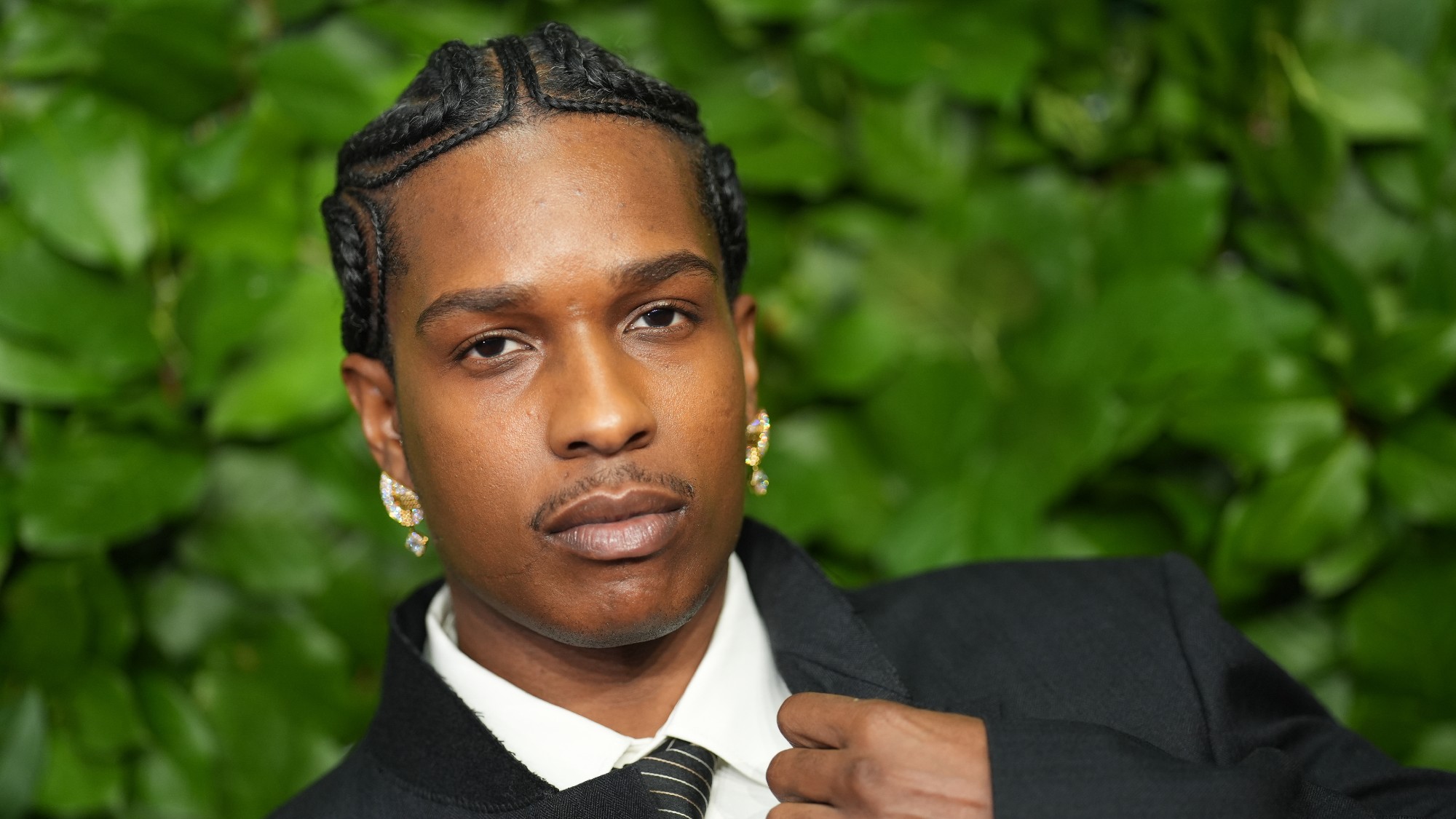The complex art of choosing Glastonbury headliners
Festival's line-up has 'raised eyebrows' with effort to 'capture the musical zeitgeist'

A free daily email with the biggest news stories of the day – and the best features from TheWeek.com
You are now subscribed
Your newsletter sign-up was successful
Headlining Glastonbury has long been seen as a career milestone for musicians, but booking the festival's top acts each year is becoming increasingly complicated for the organisers.
"About 200,000 people are expected to descend on Worthy Farm in Somerset" this week, said the BBC, with tickets having sold out back in November 2023.
But with so many music fans to please, both at the event and watching on television and online, "who should take top billing at the UK's best-loved music festival?" asked The Independent's music editor Roisin O'Connor.
The Week
Escape your echo chamber. Get the facts behind the news, plus analysis from multiple perspectives.

Sign up for The Week's Free Newsletters
From our morning news briefing to a weekly Good News Newsletter, get the best of The Week delivered directly to your inbox.
From our morning news briefing to a weekly Good News Newsletter, get the best of The Week delivered directly to your inbox.
'Worst ever'?
This year's Glastonbury line-up has been dubbed "the worst ever" by disappointed fans, said the Daily Mail.
"Eyebrows were raised", said O'Connor, and "questions abounded" following the announcement of this year's main acts, which include the return of four-time headliners Coldplay along with R&B singer SZA and pop star Dua Lipa.
Traditionally a rock festival, Glastonbury now attracts headline artists from all genres, who are doubtless talented performers but increasingly feel like a "betrayal of the festival's roots", said The Telegraph's Neil McCormick.
With Shania Twain filling the legend's slot and K-pop boyband Seventeen on the Pyramid stage, you have a line-up that is "all bubble and fizz" rather than "an old hippy celebration of alternative music culture".
A free daily email with the biggest news stories of the day – and the best features from TheWeek.com
Finding the winning formula for a successful main act isn't easy, said O'Connor. To become a "stone-cold Glastonbury headline success", artists are typically required to "capture the musical zeitgeist" at the given time, something which often changes quickly and can be subjective.
A crowded field
Another factor behind the muted reaction to this year's line-up may be the increasing competition from other festivals, with "dozens of sizeable weekenders filling up the summer", said The Times. It makes the headliner selection process far more "convoluted".
As Glastonbury "pays considerably less than its competitors", despite its popularity, there have been a series of drop-outs from major artists who have been enticed elsewhere.
A clue about what audiences are ultimately looking for could be found in the myriad of successful music festivals sharing the spotlight with Glastonbury. The main draw for ticket sales? "Anthems," The Times added. "If you are never far from a singalong, that is £200 well spent."
'Pale, male and stale'
Traditionally, the strength of Glastonbury's headliners has been seen as the festival's "golden goose" – what keeps music fans returning time after time, said British GQ in 2023.
However, the backlash to last year's "pale, male and stale" headline trio of the Arctic Monkeys, Guns N' Roses and Elton John appears to show the desires of festivalgoers are changing.
This year is the first in the festival's 54-year history when there are more female-fronted headline acts than male, and this is very much an intentional choice.
Speaking to The Guardian last year, Glastonbury organiser Emily Eavis said she was "entirely focused on balancing our bill", but described a lack of female artists as a "pipeline" problem the music industry needed to solve. She reaffirmed a commitment to "every aspect of diversity" at the festival.
But perhaps the major problem lies in the fact that Glastonbury as a whole needs "a rethink", said O'Connor – to "ditch the faded indie bands" and "embrace the new".
The festival's website states it is "impossible to put a finger on what makes a Pyramid Stage artist". That's certainly true in a sense, but this attitude does little to answer the question of "where we're at musically".
Rebekah Evans joined The Week as newsletter editor in 2023 and has written on subjects ranging from Ukraine and Afghanistan to fast fashion and "brotox". She started her career at Reach plc, where she cut her teeth on news, before pivoting into personal finance at the height of the pandemic and cost-of-living crisis. Social affairs is another of her passions, and she has interviewed people from across the world and from all walks of life. Rebekah completed an NCTJ with the Press Association and has written for publications including The Guardian, The Week magazine, the Press Association and local newspapers.
-
 6 of the world’s most accessible destinations
6 of the world’s most accessible destinationsThe Week Recommends Experience all of Berlin, Singapore and Sydney
-
 How the FCC’s ‘equal time’ rule works
How the FCC’s ‘equal time’ rule worksIn the Spotlight The law is at the heart of the Colbert-CBS conflict
-
 What is the endgame in the DHS shutdown?
What is the endgame in the DHS shutdown?Today’s Big Question Democrats want to rein in ICE’s immigration crackdown
-
 Bad Bunny’s Super Bowl: A win for unity
Bad Bunny’s Super Bowl: A win for unityFeature The global superstar's halftime show was a celebration for everyone to enjoy
-
 The 8 best superhero movies of all time
The 8 best superhero movies of all timethe week recommends A genre that now dominates studio filmmaking once struggled to get anyone to take it seriously
-
 Josh D’Amaro: the theme park guru taking over Disney
Josh D’Amaro: the theme park guru taking over DisneyIn the Spotlight D’Amaro has worked for the Mouse House for 27 years
-
 Music reviews: Ari Lennox, Lucinda Williams, and A$AP Rocky
Music reviews: Ari Lennox, Lucinda Williams, and A$AP RockyFeature ‘Vacancy,’ ‘World’s Gone Wrong,’ and ‘Don’t Be Dumb’
-
 Bad Bunny, Lamar, K-pop make Grammy history
Bad Bunny, Lamar, K-pop make Grammy historySpeed Read The Puerto Rican artist will perform at the Super Bowl this weekend
-
 The best fan fiction that went mainstream
The best fan fiction that went mainstreamThe Week Recommends Fan fiction websites are a treasure trove of future darlings of publishing
-
 Music reviews: Zach Bryan, Dry Cleaning, and Madison Beer
Music reviews: Zach Bryan, Dry Cleaning, and Madison BeerFeature “With Heaven on Top,” “Secret Love,” and “Locket”
-
 Golden Globes affirm ‘One Battle,’ boost ‘Hamnet’
Golden Globes affirm ‘One Battle,’ boost ‘Hamnet’Speed Read Comedian Nikki Glaser hosted the ceremony